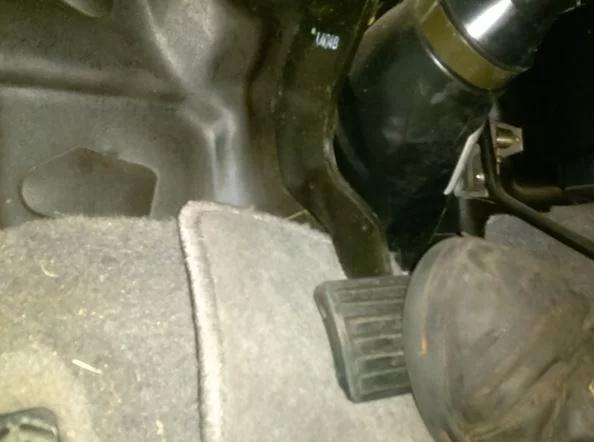One of the scariest moments that can happen while driving is when you try to stop and your break pedal sinks to the floor. When customers are experiencing this issue their descriptions of the problem resemble the following.
- While I was stopped at a traffic light my brake pedal’s hardness seemed to fade away, but the next time I stopped the brakes seemed fine.
- I heard a humming noise in my vehicle for most of the day. Finally, after turning a sharp corner, my brakes sunk to the floor.
- The road outside of my daughter’s dance class is very steep. While waiting to pick her up one day, I was holding the car with my foot brake. Suddenly, the pedal started to sink. I quickly put on the emergency brake, and that held fine. Today, my brakes are working normally again. What is going on?
- A few weeks ago I had a “complete brake job” done, but now, at times, my brakes are very low. Did they do a bad job?
This is just the tip of the iceberg when it comes to the type of things we hear from customers who have had the unfortunate experience of having their brake pedal sink to the floor.
Among the four examples listed above, three of them are most likely caused by the same culprit: the brake master cylinder.
When one of our auto mechanics, Ben, was checking a Toyota for an intermittent brake sinking problem. During testing, he snapped a picture of the problem with his iPhone. The photo below shows the brake pedal nearly hitting the floor!
What’s going on here?
It is rare to change the brake master cylinder as part of what is commonly called a “complete brake job.” As a result, it is possible for the brake master cylinder to fail even after you’ve just had a “complete brake job.”
At times, the actual process of changing the brake fluid on older vehicles can lead to the master cylinder failing, so please don’t blame the repair shop. Other failures after a brake job of any type can be related to faulty parts or brake lines seeping.
I once checked a car that had a brake wheel cylinder replaced, and there were signs of brake fluid seeping from the line connected to it. I checked the line with the system under pressure, and all seemed well. The line appeared to be tight. Much later, I saw a tiny gathering of brake fluid. When I gave the line a little extra tightening, the fluid stopped. Things like this can happen even after going through a thorough quality control process.
Another type of problem that can cause your brakes to sink is a very loose or worn out wheel bearings. If your brakes fail after a sharp turn, this is more likely to be the cause (#2 from the list above). The repair needed to correct this problem is a wheel bearing replacement.
For three of the examples we mentioned at the beginning of the article, the brake master cylinder would require replacement. The other example called for a wheel bearing replacement. The cost for replacing the break master cylinder or even a wheel bearing replacement can vary quite a bit, but if you would like a rough idea of the cost range for your specific type of vehicle, check out repairpal.com.
So, we have covered two problems that are likely to cause your brakes to sink to the floor:
1) A Brake Master Cylinder Failure
2) Loose or Warn Out Wheel Bearings
There are many more things that can cause this problem. As always, careful diagnosis is needed. Properly functioning brakes are essential for auto safety. If you have any concerns with how your brakes are performing have them checked out as soon as possible. Also, if you have any doubts about what to do while you are experiencing the brake problem, stop and have the vehicle towed. Stay safe.
If you think you might need brake service and live in the Columbia, MD area, click on the link below to schedule an appointment to have your car serviced or call us at 410-381-2700. The link below will take you to a page that includes additional information to help you better understand the different components involved in a car’s braking system.







Thanks buddy